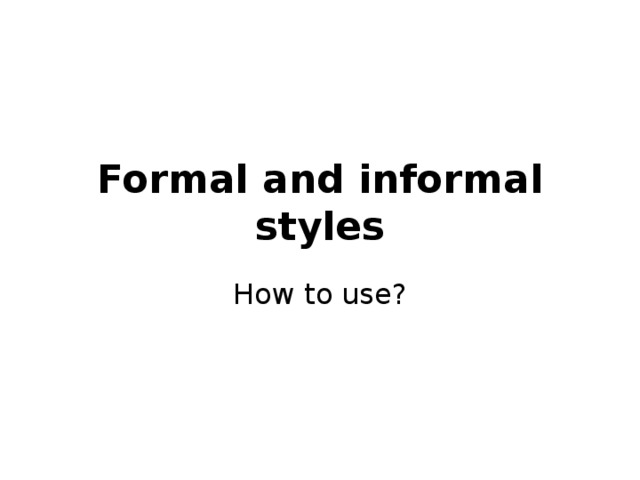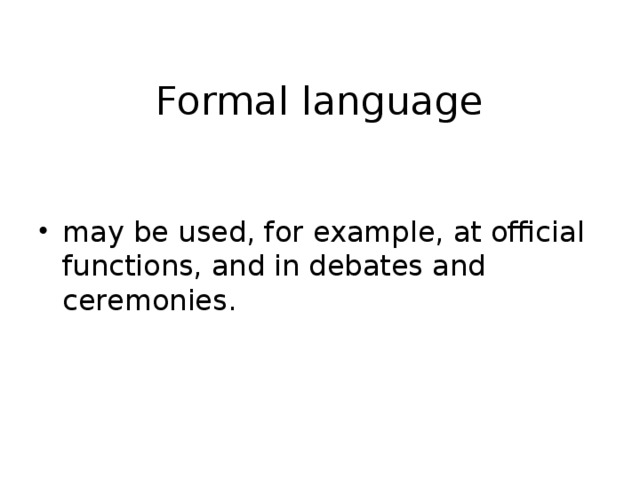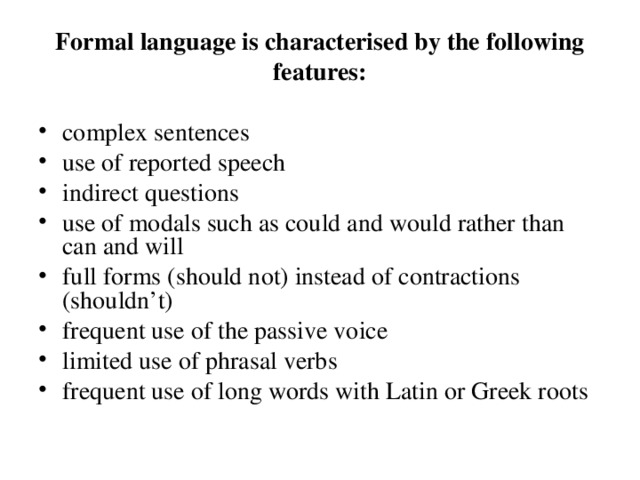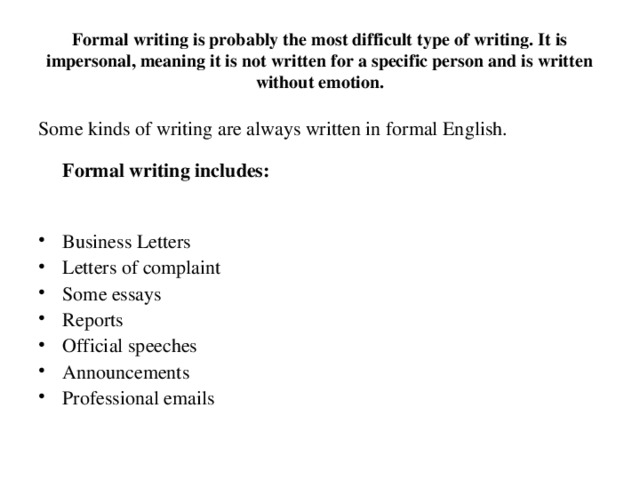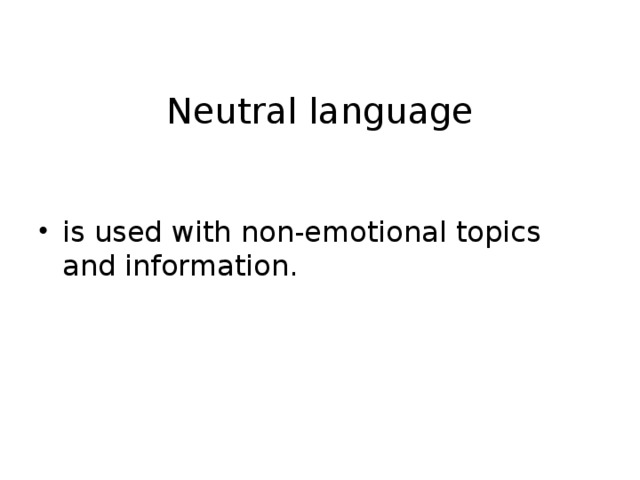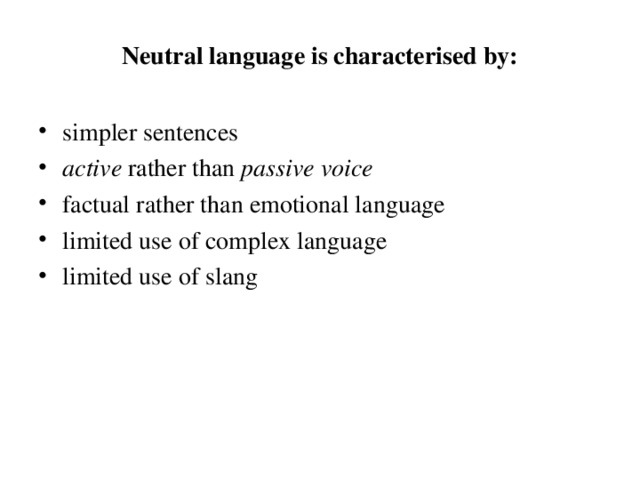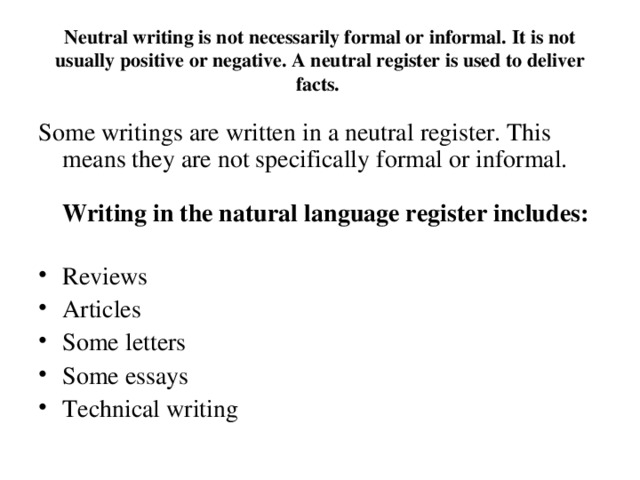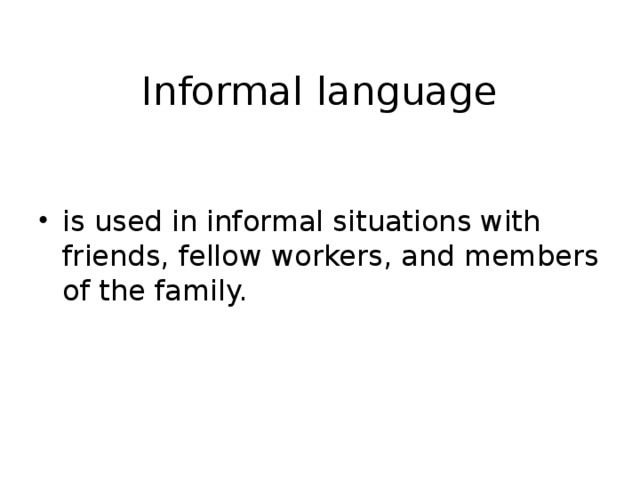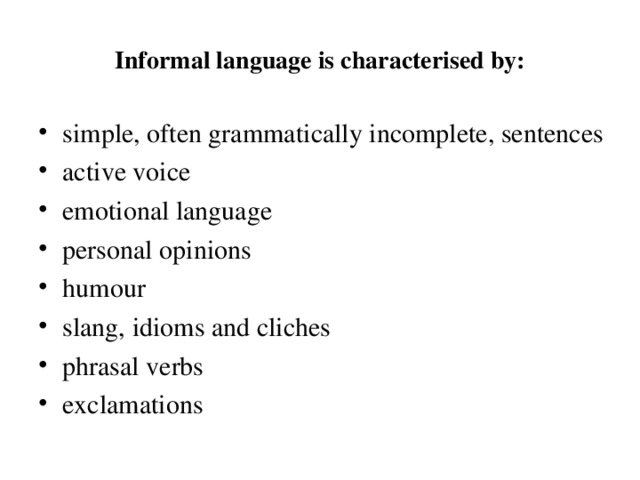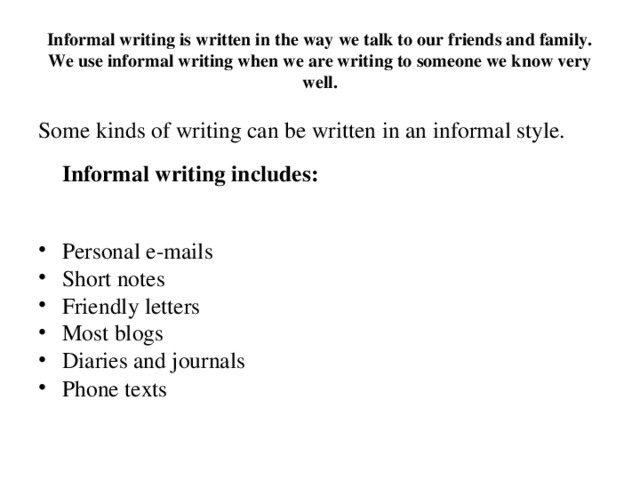Презентация предназначена для первого урока по отработке навыка построения косвенных вопросов. Данная презентация позволит учителю английского языка более доступно объяснить обучающимся различия между формальным, неформальным и нейтральным стилями речи, благодаря конкретике теории и актуальности приведенных в качестве примеров предложений.
Каждый из стилей речи рассматривается в трех аспектах:
1. Области использования.
2. Характерные для данного стиля речи черты (грамматические структуры, которые необходимо использовать в этом стиле речи)
3. Примеры сфер употребления данного стиля речи.
